EU Says Whatever Possible 'Has Been Negotiated' In Iran Nuclear Talks
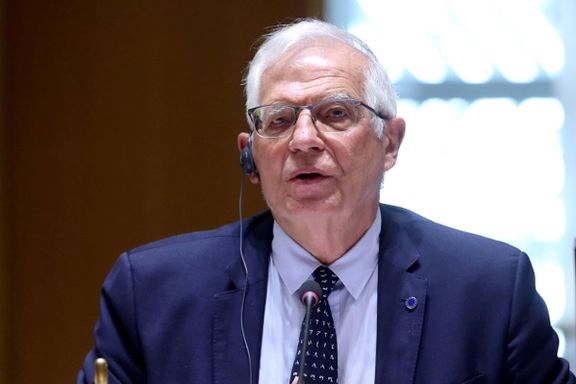
The European Union says that a text presented at the Iran nuclear talks in Vienna Monday is "final" and the respective government have to make their decisions.

The European Union says that a text presented at the Iran nuclear talks in Vienna Monday is "final" and the respective government have to make their decisions.
Top European Union diplomat Josep Borrell said on Monday that a final text has been tabled, as indirect talks ended between Tehran and Washington in Vienna aimed at salvaging the 2015 nuclear pact known as the JCPOA.
"What can be negotiated has been negotiated, and it’s now in a final text. However, behind every technical issue and every paragraph lies a political decision that needs to be taken in the capitals," Borrell tweeted.
"If these answers are positive, then we can sign this deal."
Former US President Donald Trump withdrew from the 2015 agreement calling it inadequate and imposed sanctions on Iran. President Joe Biden upon taking office began indirect talks with Iran to revive the accord.
However, after 16 months of negotiations Tehran and Washington have not been able to make a deal, with Iran accelerating its nuclear program, which has further complicated to talks.
The last round of talks started August 4 in Vienna and ended on Monday with no deadline set for the parties to respond the the EU text.
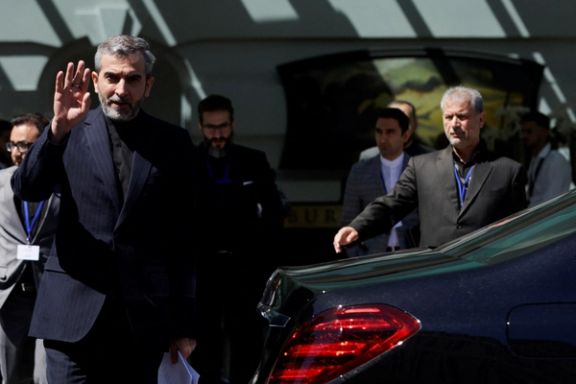
A US State Department spokesperson has told Iran International that Washington stands ready to quickly conclude an agreement on the basis of the EU’s text for renewing the 2015 nuclear deal.
"As the EU said two weeks ago, the text they tabled then is the best and only basis on which to reach a deal,” the spokesperson said on Monday in response to an inquiry by Iran International’s correspondent Samira Gharaei. “Our position is clear: we stand ready to quickly conclude a deal on the basis of the EU’s proposals,” the State Department Press Office noted.
“Over the past few days, the EU Coordinator engaged in further consultations to help clarify and finetune any remaining questions regarding that text. Those consultations were completed today and we’ll now await the EU’s next steps,” the spokesperson said.
The spokesperson said Iran repeatedly says it is prepared for a return to mutual implementation of the JCPOA, underlining that the current text “is the only possibility basis on which to do so.” Let’s see if their actions match their words."
American and Iranian diplomats left Vienna Monday after the European chair of talks offered a fresh and “final” text for renewing the deal.
European officials described the document to journalists as a ‘take it or leave it’ offer for both sides. One told Iran International that Enrique Mora, the European Union official coordinating talks, had circulated a “final text…with all the necessary points to put into action.” Another European official told AFP that the text was “not subject to further negotiations” and that a result was expected in “the next few weeks.”
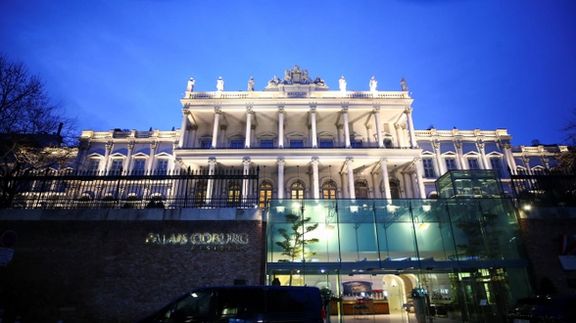
American and Iranian diplomats were leaving Vienna Monday after the European chair of talks offered a fresh and “final” text for renewing the 2015 nuclear deal.
European officials described the document to journalists as a ‘take it or leave it’ offer for both sides. One told Iran International that Enrique Mora, the European Union official coordinating talks in the Austrian capital since Thursday, had circulated a “final text…with all the necessary points to put into action.” Another European official told AFP that the text was “not subject to further negotiations” and that a result was expected in “the next few weeks.”
By contrast, the official IRNA news agency portrayed Mora’s text as “some ideas concerning some of the remaining issues.” IRNA said that “four rounds of talks” in Vienna had seen “relative progress in some issues,” while Mora’s proposals required “further and more complex examination” before Iran gave its “opinions and observations to the coordinator [Mora] and other parties.”
Iran’s Nour News, which is affiliated to the Supreme National Security Council, denied a report that the text would be finalized within hours.
The US State Department told Iran International that Washington will "now await the EU’s next steps" and added, "we stand ready to quickly conclude a deal on the basis of the EU’s proposals."
Discussions in Vienna began Thursday after the European Union foreign policy chief Josep Borrell in late July circulated a text designed to bridge gaps between Iran and the US over restoring the 2015 nuclear deal, the JCPOA (Joint Comprehensive Plan of Action).
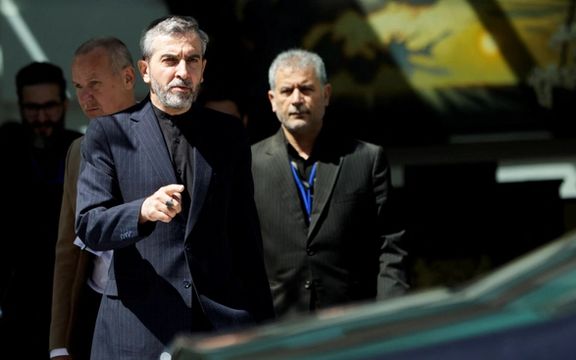
Nearly a year of multilateral talks in Vienna, April 2021-March 2022, and June’s bilateral United States-Iran meeting in Qatar, failed to agree which US sanctions, introduced after 2018 when Washington left the JCPOA, breached the agreement, and how Iran should return its nuclear program, developed after 2019, to JCPOA limits.
‘Swift decisions’
In a newspaper article July 26, Borrell said the time had come for “swift political decisions” as “the space for additional significant compromises has been exhausted.” But while European officials stressed Borrell’s text was a last chance to restore the JCPOA, Vienna brought days of intense discussions, political and technical, as EU diplomats scurried between the two different hotels along Vienna’s historic Ringstrasse where the American and Iranian delegations were based.
Reports emerging from the talks suggested the substantive remaining points were guarantees sought by Iran of access to world markets as required under the JCPOA, and continuing enquiries by the International Atomic Energy Agency (IAEA) into nuclear work carried out by Iran before 2003.
The European official speaking to Iran International reiterated the EU’s position that these enquiries, over unexplained uranium traces found at several sites, are ‘technical’ matters within the IAEA’s remit and unrelated to the JCPOA talks. Tehran argues that the agency in 2015 issued a conclusive report on Iran’s pre-2003 work and revived the matter only after allegations made by Israel.
The latest Vienna talks have essentially been between Iran and the US with the EU coordinating. Other JCPOA signatories – China, France, Germany, Russia, and the United Kingdom – have sat aside while holding some bilateral meetings to renew progress.
Mikhail Ulyanov, Russia’s IAEA ambassador, tweeted Monday that “the participants in the Vienna talks now needed to decide if the draft is acceptable.” He put “the final text” in quotation marks.
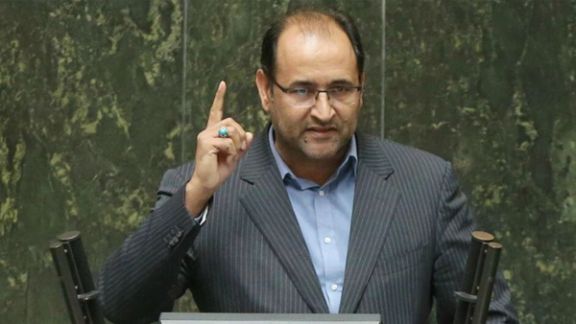
Iran will not surrender to any kind of threats, pressures or sanctions, a prominent lawmaker said Monday, while nuclear talks were taking place in Vienna.
Jalil Rahimi Jahanabadi, a member of parliament’s foreign policy and national security committee, told the government’s official news website IRNA that it is the West that should act “rationally” in the nuclear negotiations.
“We hope that the West will understand the Islamic Republic’s message,” Rahimi a member of the hardliner majority in parliament said, “because [we] will not dismantle our nuclear installations or reduce our [uranium] enrichment.” He vowed to keep the uranium, which Iran has enriched to 20 and 60-percent, and not accept international monitoring beyond the Nuclear Non-Proliferation Treaty, without the West giving a series of guarantees.
First, the United States and Europe must provide a guarantee not to leave the nuclear deal. They must also guarantee that oil export revenues reach the Iranian government.
Iran has been emphasizing the issue of a guarantee by the US to stay in a new nuclear agreement even before multilateral talks started in April 2021. Tehran’s argument is that former US President Donald Trump unilaterally withdrew from the 2015 deal known as the Joint Comprehensive Plan of Action (JCPOA) and Iran needs assurance that this will not happen again.
However, no US president can provide such a guarantee if an agreement is not a formal treaty, which would need Senate ratification – an almost impossible task with the highly controversial JCPOA.
Iranian officials have also demanded a host of other guarantees, including a pledge by the West that Iran would be able to attract foreign investments if it agrees to limit its nuclear program. The United States has promised to lift its oil export and banking sanctions, but no one can guarantee if Iran would receive foreign investments.
Rahimi told IRNA that the West does not realize that the world has changed and countries like China or Iran will not carry out their orders. “Iran, in terms of military, political and economic power is not a weak state to be subservient to the West, but Westerners look at the world as though it is still the 18th or 19th centuries…”
The Wall Street Journal on Sunday cited the European Union's coordinator of the talks, Enrique Mora, as saying the negotiations to restore the JCPOA are close to completion, but it remained unclear whether Tehran will accept the final deal. The text of a deal could be closed in the coming hours, Mora had said. An unnamed Iranian foreign ministry official denied the report.
“Given the continuation of discussions on some remaining important issues, we’re not yet at a stage to finalize the text. “We believe that Vienna Talks can be concluded soon provided that the other party makes an appropriate decision. But we are not at that stage yet,” IRNA quoted the official as saying.
After sixteen months of negotiations, diplomats gathered in Vienna last week for what some said was a last-ditch effort to reach an agreement. Apparently, Iran insists on receiving guarantees and also demands that an investigation by the International Atomic Energy Agency of its past secret nuclear work be shelved.
Rahimi also said that despite its capabilities in enriching uranium, Tehran is ready for talks to resolve the issue but “the problem Iran has with Western countries is the degree of their understanding of global realities.”
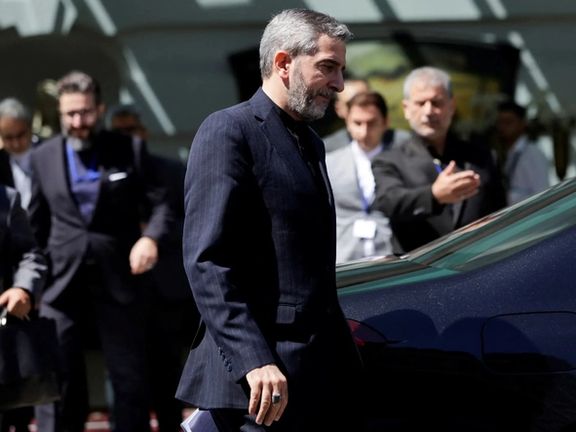
An Iranian foreign ministry official has rejected reports that the text of an agreement to salvage the 2015 nuclear deal could be finalized in the coming hours.
The Iranian government’s official news website IRNA quoted the unnamed official as saying that the talks are still underway on some important issues and that “we are not yet at a stage where we can talk about a finalized deal.”
“Given the continuation of discussions on some remaining important issues, we’re not yet at a stage to finalize the text. Iran has presented its constructive views to the other party so as to move forward and the result is up to their political decision,” the source said. “We believe that Vienna Talks can be concluded soon provided that the other party makes an appropriate decision. But we are not at that stage yet.”
He made the remarks in reaction to a Sunday report by The Wall Street Journal that cited the European Union's coordinator Enrique Mora as saying the negotiations to restore the JCPOA (the Joint Comprehensive Plan of Action) are close to completion but it remained unclear whether Tehran will accept the final deal. The text of a deal could be closed in the coming hours, Mora had said.
However, Iran must still decide whether to set aside its demand that the nuclear deal can only be revived if a multiyear United Nations’ atomic agency safeguard probe into its nuclear program is closed, the report added, noting that “Several Western diplomats said Sunday that Tehran has doubled down on this condition in the past few days of talks and there is no agreement on the issue.”

A former senior lawmaker in Tehran says a US guarantee about its commitment to the 2015 nuclear agreement with Iran is the master key to unlock a new deal.
Heshmatollah Falahatpisheh told the moderate conservative news website Khabar Online in Tehran on Sunday, August 7, that it is only a US guarantee to lift the sanctions, and a guarantee that there would be no impediment to Iran’s oil exports, other trade and foreign investments .
The former conservative lawmaker who headed the foreign policy and national security committee of the parliament added that it is only with such a guarantee that a revived version of the JCPOA could be signed and put into effect.
According to Khabar Online, an agreement is still not within reach despite all the hopes expressed by Iranian and US officials at different times. Meanwhile, despite conflicting statements by Iranian officials, Iran's former nuclear chief Fereidoun Davani has said, "Iranian negotiators have so far withheld from the nation and the parliament what their preconditions for the revival of the JCPOA are," and that everything in the press about this is sheer speculation.
Falahatpisheh said that "Iran has spent a lot of money on developing its uranium enrichment infrastructure and shutting it down will be a waste. So, Iran deserves a bigger concession if it is to accept to limit its nuclear program at this stage. This bigger concession could be lifting the sanctions and guaranteeing the implementation of the resulting agreement."
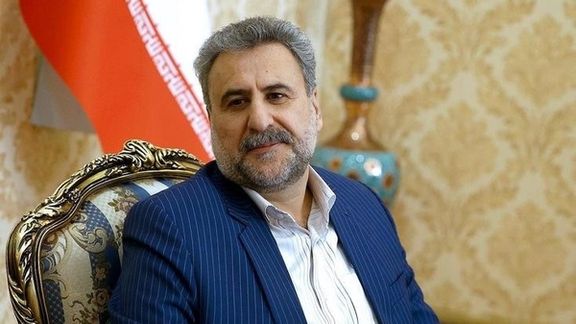
He said that US President Joe Biden has access to five different tools to guarantee an agreement. These tools include an executive order that will allow him to circumvent possible opposition at the Congress. He added that such a guarantee should make sure that any new agreement signed after the revival of the JCPOA would not be subjected to new sanctions.
He went further by saying that US Presidents can do anything if pressured but did not say how Iran can exert that pressure on Biden. Meanwhile, Falahatpisheh did not respond to Khabar Online's question about whether Iran would be ready to modify its preconditions if the US president gives Tehran the guarantees it wants.
Yet the Iranian President, Ebrahim Raisi may have another idea about a guarantee. His deputy chief of staff for political affairs Mohammad Jamshidi wrote in an August 5 tweet: "In all recent telephone conversations between President Raisi and the Presidents of France, Russia and China, it was his firm position that ONLY when the so called Safeguard Issues is resolved and closed, can the final agreement be achieved."
Iranian officials have often also raised the question of receiving foreign investments, while some Iranian commentators have pointed out that Western governments cannot force or convince private companies to invest in a country if they deem the prevailing conditions as risky.
Several Khabar Online readers expressed concern in the comments section about whether it is safe to allow the Iranian government to receive billions of dollars if an agreement is reached. They said that eventually the government would channel the funds to its regional proxy groups.
Others said they were worried that some corrupt officials would embezzle released assets. Several other readers commented that the US government is not trustworthy, and an agreement made with the current government could be torpedoed by the next US administration.